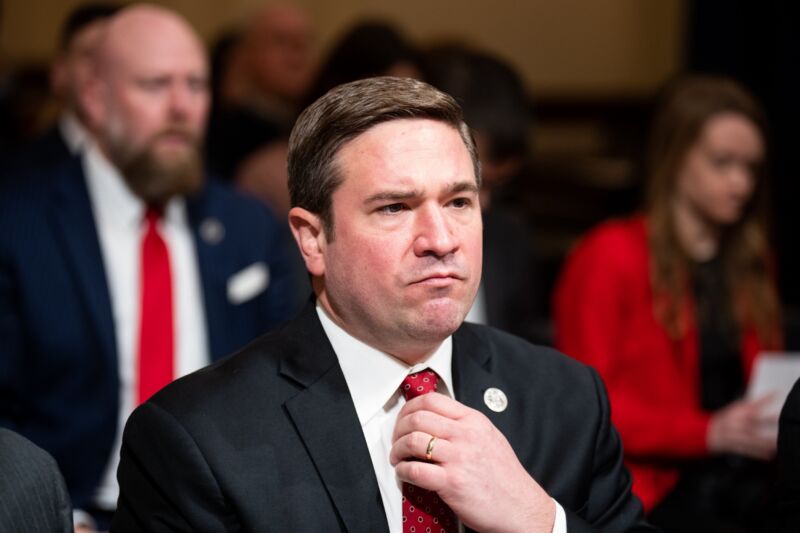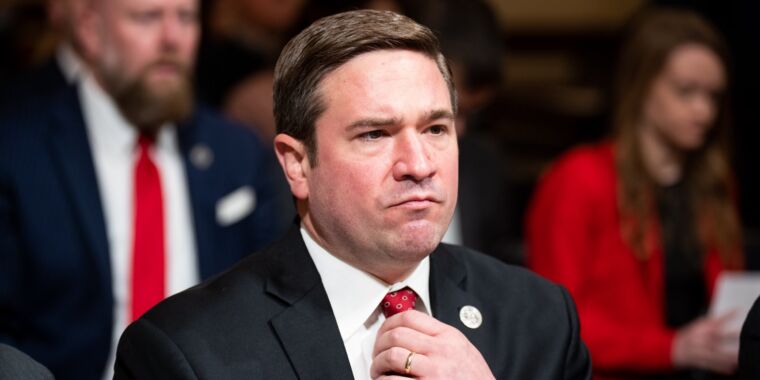
Getty Images | Bill Clark
A federal judge has ordered the Missouri attorney general to drop an investigation into Media Matters for America, a nonprofit organization for journalists that drew the ire of Elon Musk after the organization published an article alleging that Musk's X platform placed ads alongside pro-Nazi content.
In March, Missouri Attorney General Andrew Bailey filed a search warrant requesting the names and addresses of all Media Matters donors living in Missouri and a series of internal communications and documents related to the group's investigation into Musk and X. Bailey also filed a lawsuit asking the Cole County District Court for an injunction enforcing the search warrant.
Media Matters countersued Bailey in the U.S. District Court for the District of Columbia. Last week, U.S. District Judge Amit Mehta granted a preliminary injunction prohibiting Bailey from enforcing the civil investigative order and pursuing the related lawsuit.
Mehta had issued a similar injunction against Texas Attorney General Ken Paxton a few months earlier. Mehta filed a memorandum opinion on August 23 describing his reasons for granting Media Matters' request for an injunction against Bailey.
Media Matters has shown that the claim that Bailey took retaliatory measures to discourage free speech is likely to succeed, Mehta wrote:
The court has already held that the announcement of an investigation by defendant Paxton and the issuance of a CID [Civil Investigative Demand] Demanding documents relating to Media Matters’ organization, funding, and journalism would be a sufficient deterrent to any news organization or journalist “of ordinary fortitude” from again covering X-related matters. Defendant Bailey has gone a step further. He has not only filed a lawsuit to enforce the Missouri CID, but has also asked a state court to impose a civil penalty on Media Matters. Such action effectively freezes free speech.
X did not deny the basic premise of the article
Media Matters also “arguably demonstrated that its reporting was not defamatory and therefore protected speech,” Mehta wrote. In his public response to the November 2023 Media Matters article, “X did not deny that advertising had in fact appeared alongside the extremist messages on the day in question,” Mehta wrote. He continued:
X stated that it had served “fewer than 50 total ad impressions” beyond the “organic content served in the Media Matters article” (a fraction of the 5.5 billion ad impressions that day), and admitted that [Media Matters reporter Eric] Hananoki and another individual had seen ads from two of the brands mentioned in the article alongside extremist content. X called these “contrived experiences,” but did not deny the basic premise of the article: that X’s platform delivered ads from major brands alongside extremist content. Many other media outlets have published similar findings as recently as April 2024. These other stories corroborate Hananoki’s reporting and the plaintiffs’ belief in its accuracy.
Mehta's ruling said Bailey made clear that “the true purpose of his investigation” was political. “Significantly, Defendant Bailey explicitly tied the investigation to the upcoming election” during an online interview with Donald Trump Jr., Mehta wrote.
“This is absolutely a new front in the fight for the war on free speech. This investigation is really critical and again especially as we head into an election cycle in 2024,” Bailey said during the interview.
Bailey's lawsuit in Cole County Superior Court alleged that “Media Matters used fraud to solicit donations from Missourians to trick advertisers into removing their ads from X, formerly Twitter, one of the last platforms dedicated to free speech in America.” Bailey has not provided good evidence to support this claim, Mehta wrote.
Missouri Assistant Attorney General Steven Reed “never identifies what allegedly fraudulent statements or omissions Media Matters made to Missourians to solicit donations,” Mehta wrote. “If he means to say that the defamatory reporting Even though he himself is the fraud, he does not link that content to Media Matters’ fundraising efforts. For example, he does not claim that Media Matters used his reporting on X to solicit donations. The webpage on which the November 16 article appeared did not even explicitly invoke fundraising. Nor did it contain a donation link. Defamation is not fraud. So it is likely that the false-reporting-as-fraudulent-fundraising justification for the investigation is a pretext for retaliation.”
Bailey can appeal Mehta's order. If the order is upheld, the preliminary injunction will remain in effect until a final judgment is reached in Media Matters' case against Bailey.

